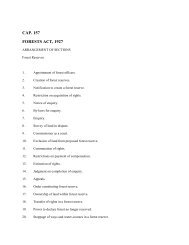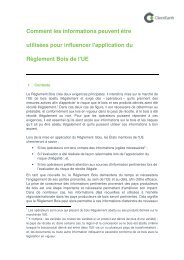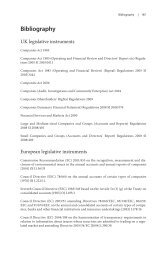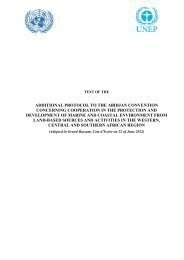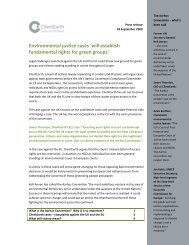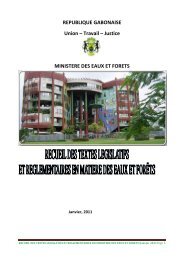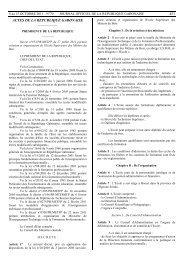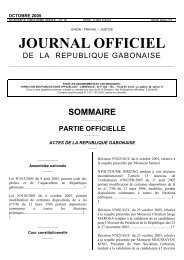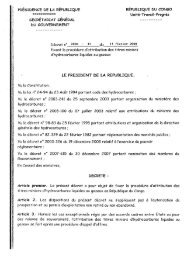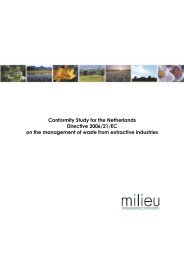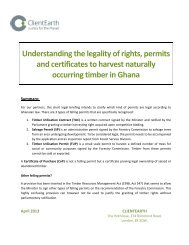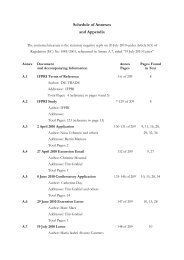Environmental and social transparency under the ... - ClientEarth
Environmental and social transparency under the ... - ClientEarth
Environmental and social transparency under the ... - ClientEarth
- No tags were found...
You also want an ePaper? Increase the reach of your titles
YUMPU automatically turns print PDFs into web optimized ePapers that Google loves.
168 | <strong>Environmental</strong> <strong>and</strong> <strong>social</strong> <strong>transparency</strong> <strong>under</strong> <strong>the</strong> Companies Act 2006Notes | 169Chapter 2127Now <strong>the</strong> Department for Business Innovation <strong>and</strong> Skills (BIS), previously also <strong>the</strong>Department for Business Enterprise <strong>and</strong> Regulatory Reform (BERR).128Department of Trade <strong>and</strong> Industry, ‘Modern Company Law for a Competitive Economy’(March 1998).129Ibid., p. 9.130Electronic copies of which can be found at (at February 2009). These will be discussed below where relevant.131DTI, ‘Company Law Reform’ (March 2005).132Ibid.133SJ Berwin Press Release, ‘Company Law Review “A Superb Process”, says SJ Berwin’sPhilip Goldenberg’ (27 July 2001).134See Company Law Review Steering Group, ‘Modern Law for a Competitive Economy: TheStrategic Framework’ (February 1999) note 27, p. 37.135Proponents of <strong>the</strong> concept argue that as well as (properly) protecting <strong>the</strong> property interestsof shareholders, this is also in principle <strong>the</strong> best means of securing overall prosperity<strong>and</strong> welfare for society more broadly. After considerable debate <strong>and</strong> consultation throughout<strong>the</strong> CLR, <strong>the</strong> idea that company directors should have regard to <strong>the</strong> interests of anyoneor anything above or on <strong>the</strong> same level as those of <strong>the</strong>ir shareholders (labelled <strong>the</strong> ‘pluralist’approach) was rejected.136Company Law Review Steering Group, ‘Modern Law for a Competitive Economy: TheStrategic Framework’, p. 37.137s 172 Companies Act 2006.138DTI, ‘Company Law Reform’ (March 2005), pp. 16-17.Chapter 3139Allen L. White, ‘Business Brief: Intangibles <strong>and</strong> CSR’ (February 2006), p. 8.140Company Law Review Steering Group, ‘Modern Law for a Competitive Economy: TheStrategic Framework’ (February 1999), p. 13.141J Low <strong>and</strong> P Kalafut, Invisible Advantage: How Intangibles are Driving Business Performance(2002) p. 6.142Allen L. White, ‘Business Brief: Intangibles <strong>and</strong> CSR’, p. 5.143Darrell Bricker, ‘The Resiliency Concept’, from Ipsos, ‘Corporate Reputation: ConnectingFantasies with Reality’ (March 2006).144An MBA is a ‘Master of Business Administration’, an internationally recognised master’sdegree in business administration.145Business for Social Responsibility, ‘Human Rights’ (May 2002), quoted in D Neef, ManagingCorporate Reputation <strong>and</strong> Risk: A Strategic Approach Using Knowledge Management,p. 35.146Pierre Lassonde, ‘How To Earn Your Social Licence: Without local community support,your project is going nowhere’, Mining Review (2003) Summer.147Allen L. White, ‘Business Brief: Intangibles <strong>and</strong> CSR’, p. 7.148J Nelsen <strong>and</strong> M Scoble, ‘Social License to Operate: An Industry Survey’, Mineral Exploration(2003) Spring.149Business for Social Responsibility, ‘Emerging Trends in Corporate Social Responsibilityin <strong>the</strong> Mining Industry’, Materials for PDAC Short Course, Toronto, 2-3 March 2007.150J Nelsen <strong>and</strong> M Scoble, ‘Social License to Operate: An Industry Survey’.151Business for Social Responsibility, ‘Emerging Trends in Corporate Social Responsibilityin <strong>the</strong> Mining Industry’.152Oxfam America, ‘Breakthrough on Quilish’ (19 November 2004).153Hannah Hennessy, ‘Gold mine sparks battle in Peru’ BBC News (1 June 2005).154Shell Nigeria website, ‘Shell in Nigeria – History’ (accessed Nov 2009) .155For example, see R Boele et al, ‘Shell, Nigeria <strong>and</strong> <strong>the</strong> Ogoni. A study in unsustainabledevelopment: I. The story of Shell, Nigeria <strong>and</strong> <strong>the</strong> Ogoni people - environment, economy,relationships: conflict <strong>and</strong> prospects for resolution’ (2001) 9 Sustainable Development 2, pp.74-86. One of <strong>the</strong> most controversial practices in Nigeria is that of ‘gas flaring’, wherebyexcess gases <strong>and</strong> hydrocarbons are ‘burnt off’ from <strong>the</strong> production line. This practice hasbeen reported to: have heavily polluting effects in <strong>the</strong> local atmosphere; be seen by localcommunities to have brought ill health <strong>and</strong> crop damage; have provoked law suits fromlocal communities, <strong>and</strong>; in a ruling of 2005, have been found by <strong>the</strong> Federal High Courtof Nigeria to be a ‘gross violation’ of human rights. See, respectively: The Climate JusticeFoundation <strong>and</strong> <strong>Environmental</strong> Rights Action, ‘Gas Flaring in Nigeria’ (June 2005); TerryMacalister, ‘Shell faces flaring lawsuit’ The Guardian (21 June 2005); Gbembre v. Shell PetroleumNigerian Limited, et al., FHC/B/CS/53/05 (Federal High Court of Nigeria).156In particular, reports proliferated during <strong>the</strong> regimes of General Ibrahim BadamasiBabangida <strong>and</strong> General Sani Abacha. See Geoffrey Lean, ‘Shell ‘paid Nigerian military’’Independent on Sunday (17 December 1995); Cameron Duodu, ‘Shell Admits ImportingGuns for Nigerian Police’ The Observer (28 January 1996); Ken Saro-Wiwa, ‘CompleteStatement To Ogoni Civil Disturbances Tribunal’ (21 September 1995).



